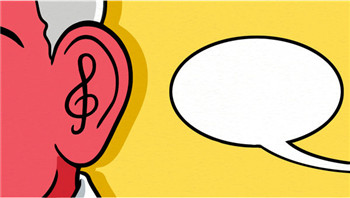
Surgical patients who listen to music — even while they are under general anesthesia — have less anxiety and need less pain medication during recovery than those who do not, a large review of studies has found.
一項(xiàng)大型研究綜述發(fā)現(xiàn),與不聽(tīng)音樂(lè)的患者相比,聽(tīng)音樂(lè)的手術(shù)患者在恢復(fù)期間焦慮程度較低,需要的鎮(zhèn)痛藥量也較少,即使他們是在全身麻醉狀態(tài)下依然如此。
The analysis, in Lancet, includes data from 72 randomized controlled trials. The studies covered various music genres, timing and delivery methods (speakers versus headphones), and procedures ranging from routine colonoscopy to open heart surgery. Researchers recorded length of stay in the hospital, measured pain using numerical rating scales, and estimated anxiety and satisfaction by self-report.
這項(xiàng)發(fā)表在《柳葉刀》雜志(Lancet)上的分析共計(jì)納入了72項(xiàng)隨機(jī)對(duì)照試驗(yàn)的數(shù)據(jù)。這些研究涵蓋了不同的音樂(lè)類(lèi)型、播放音樂(lè)的時(shí)機(jī)以及播放方式(揚(yáng)聲器還是耳機(jī)),涉及從常規(guī)結(jié)腸鏡檢查到心內(nèi)直視手術(shù)等各種各樣的手術(shù)。研究人員記錄了患者們的住院時(shí)間,用數(shù)字評(píng)分量表衡量了他們的疼痛程度,并通過(guò)自我報(bào)告估計(jì)了他們的焦慮程度和滿意度。
Compared with regular care, music was associated with a 20 percent reduction in postoperative pain, a 10 percent reduction in anxiety and a significant reduction in the use of pain medication. It increased patient satisfaction slightly, but did not affect length of hospital stay.
與常規(guī)治療相比,音樂(lè)與術(shù)后疼痛減少20%,焦慮減少10%以及止痛藥使用顯著減少相關(guān)。它還令患者的滿意度略有增加,但對(duì)住院時(shí)間長(zhǎng)短沒(méi)有影響。
Pain was reduced most when music was played before the operation, slightly less when played during the procedure, and least when played afterward, but the difference in timing was not clinically significant.
在術(shù)前播放音樂(lè)時(shí)減輕疼痛的效果最好,在術(shù)中播放時(shí)效果稍顯不足,在術(shù)后播放時(shí)效果相對(duì)最差,但播放時(shí)機(jī)之間的差異不具備臨床意義。
“If you like music and find it calming, it might help a lot,” said the senior author, Catherine Meads, a reader in health technology assessment at Brunel University in London. “It might be that hospitals would want to tell patients that they can listen to music before the operation.”
“如果你喜歡音樂(lè),覺(jué)得它能帶給你平靜,它可能會(huì)大有助益,”該研究的責(zé)任作者、《衛(wèi)生技術(shù)評(píng)估》雜志(health technology assessment)的審稿人、布魯內(nèi)爾大學(xué)(Brunel University,位于倫敦)的凱瑟琳·米茲(Catherine Meads)說(shuō)。“根據(jù)這一研究結(jié)果,醫(yī)院可能會(huì)建議患者,如果喜歡,可以在手術(shù)前聽(tīng)聽(tīng)音樂(lè)。”











